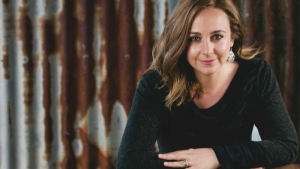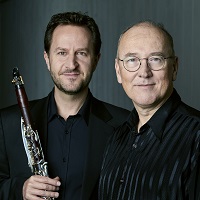Still, A Katy Abbott Commission

This week our latest commissioned Australian composer, Katy Abbott, delivered her work Still for clarinet and piano to Australia Ensemble UNSW. After a difficult year in Melbourne, Abbott has found peace and hope in composing for David Griffiths and Ian Munro.
When the commission was originally proposed, you wrote“The focus is less on virtuosic playing but rather to reflect further on what I’ve learned during a much quieter and more ‘still’ few months. I think creating metaphorical space within the music, through stillness, beauty and simplicity creates potential and capacity for audience reflection which both stimulates curiosity about ourselves and each other as well as inform us about how we show up in the world.” Did this original concept form the core of your work, or has it evolved into something else over the past 4 months?
This is exactly what I have ended up writing. The vision for this work was really clear when I wrote this statement. This spaciousness within the piece provides an upside-down virtuosity – a way for the duo to connect deeply through the music; the space provides exposure – which although beautiful, is also vulnerable, fragile.
The first lockdown in Melbourne provided space for me to regroup which is where the concept was initiated. The second lockdown, the one we are still in, is more about personal capacity. I have watched my family, friends, neighbours, and colleagues wrestle, push and tire. All with terrific attitudes!
This piece was the only piece that could be composed (for me) during this time. I hope it is one of peace and hope. My home office looks out to my front veranda and I have spent many days looking at the sunlight dappled through the lovely twisted gum tree. This reminds me of strength and stillness which I am sure is represented in the work somehow.
 What do you enjoy when composing for the combination of clarinet and piano? What challenges are there?
What do you enjoy when composing for the combination of clarinet and piano? What challenges are there?
The challenge is not to get stuck into a solo with piano accompaniment setting. It is not such a challenge when one is aware of it. The two lines work together, and this was a joy to imagine David and Ian creating a single narrative/atmosphere.
How does your research into writing for the voice influence your instrumental writing?
The voice is a very strong influence in all my works. I compose by singing most of the lines. Nothing fancy, just into my iPhone voice memos.
Not only is voice my only (somewhat flawed) instrument, but I am influenced by it because it comes out of the body itself.
Most of my work has some focus on people and, in particular, what is going on under the surface – in the mind and heart so for the voice to be part of my compositional process sits well with me.
Where do you envision this piece going? Who do you hope uses the educational resources being developed around this commission?
Although this piece is written during lockdown in 2020, it is my hope Still is not packaged into ‘a lockdown’ piece box. Of course, I hope it is performed widely because of its inherent musical and human qualities that speak more broadly to an audience through the performer’s interpretation.
How do you think organisations and patrons of classical music can best support gender equity, and increased diversity and inclusivity in Australia’s classical music industry?
Being aware, being deliberate. Actions are the strongest indicator of commitment.
